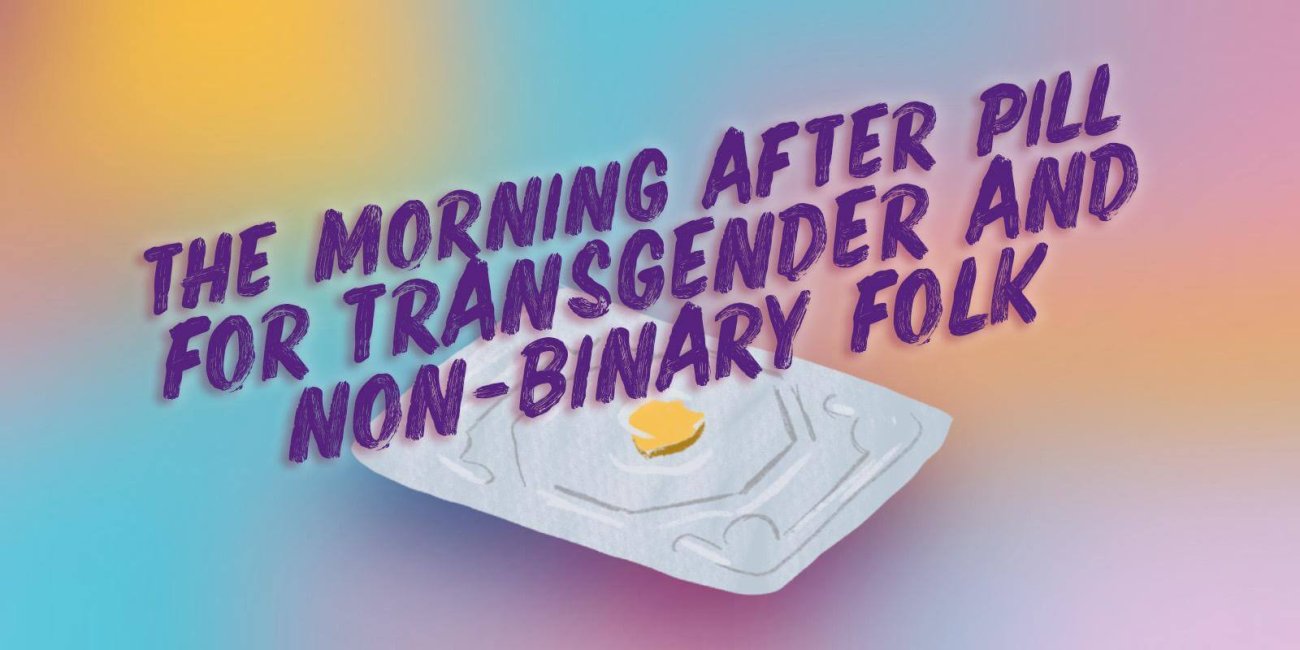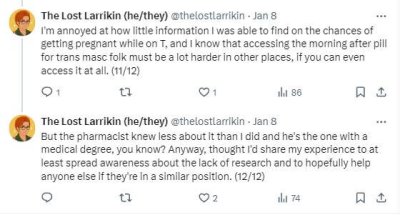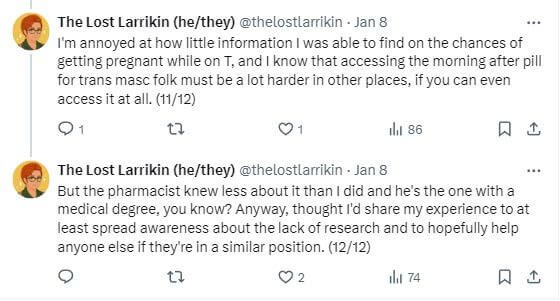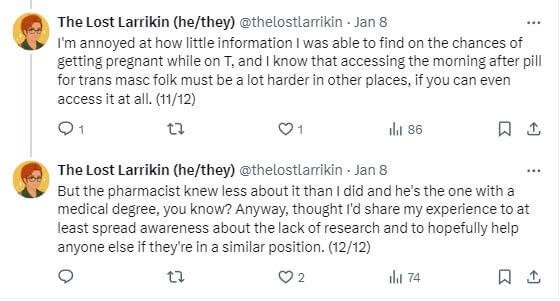The Morning After Pill for Transgender and Non-Binary Folk
Proper, accurate sexual education is so important because it can help us to understand our bodies and reproductive systems, but sometimes transgender and non-binary folk get left behind. Finding answers to seemingly straightforward questions can be challenging, such as whether it’s suitable to take emergency contraception after testosterone injections. Sometimes even professional healthcare providers don’t have all the answers they need to help you make choices about how best to avoid unplanned pregnancy.
The good news is that the morning after pill can suitable for many people who have transitioned or are currently transitioning, and there are methods of contraception that you can use to practise safe sex every time. Read on to understand why ellaOne may still be suitable for you to use, and how you can avoid unplanned pregnancy without disrupting your hormone therapy.
Please note that while we hope this piece can help you to understand in a broad sense why the morning after pill may be suitable for you to take or why certain hormonal contraceptives might not be the best choice, if you have any questions about your medication or treatment it’s always best to speak to your GP or pharmacist.
Can a transgender person get pregnant?
Yes, if you are trans or non-binary and have a uterus and ovaries, there is a chance that you could get pregnant following an instance of unprotected sex or contraceptive failure. This remains true even if you are undergoing testosterone therapy.
Does testosterone therapy work as contraception?
No, if you are currently having testosterone therapy or have had it in the past, it is still possible for you to become pregnant. Many think that testosterone works as a contraceptive and some even think it renders you permanently infertile, but this is inaccurate. It can affect your fertility and may halt ovulation, but there is no guarantee that this will be the case.
A survey of forty-one trans men who had been pregnant and delivered after transitioning “socially, medically, or both” revealed that most of respondents had previously used testosterone. While this does not tell us the likelihood of becoming pregnant while using testosterone, it does tell us that it is possible and that there is a risk to be aware of for those who do not wish to become pregnant.
Do hormonal contraceptives and testosterone affect each other?
It depends. If you are using testosterone and worried about contraception, you have plenty of options, but there are a few things worth knowing about.
Barrier methods can be used, so condoms and diaphragms are still an option. Non-hormonal methods including some IUDs will not affect your use of testosterone.
Combined hormonal contraceptives (including the combined oral contraceptive pill) contain oestrogen which could counter the effects of the testosterone used in masculinising hormone therapy.
Progestogen-only contraceptives do not contain oestrogen, which means that the mini-pill could be a good way to help avoid unplanned pregnancy, and some IUDs fall into this category as well.
Can trans men take the morning after pill?
Yes. ellaOne does not contain oestrogen or any other hormones, so it doesn’t have the same effect on testosterone that contraception containing oestrogen does. It does affect the hormone progesterone, but not testosterone. The active ingredient ulipristal acetate affects progesterone by blocking the progesterone receptors that signal to the body when it’s time to ovulate.
Can trans men buy the morning after pill?
Of course! There are no laws against any men or non-binary people purchasing the morning after pill from a pharmacy. With this being said, each sale is at the pharmacist’s discretion and they can choose not to go ahead with the sale if they have any concerns.
Pharmacists will ask questions about who is taking the pill and their medical history to ensure that it is the correct medication for them, and this could mean disclosing that you are trans or non-binary. This consultation is also a good opportunity to ask any questions you might wish to ask. However, if you have any questions that relate specifically to hormone therapy, it may be best to speak to your primary healthcare provider.
Remus, 22, posted on X.com about their experience buying the morning after pill at an Australian pharmacy after conducting his research online into whether it was suitable and what the risks were with and without emergency contraception, explaining that while the pharmacist was ultimately satisfied that he was able to answer the required questions and did sell him the morning after pill, they knew less about it than he did.
We would love it if everyone had the information needed to make it easier for trans and non-binary people to have healthy, safe sex, and to get the help they need when things don’t quite go to plan. If you’re still learning, why not check out our guide to understanding gender identities and pronouns? Gender GP also has a section on their website for trans sex education featuring a variety of topics that may not have been covered in sex ed class, and sexual health charity Brook has a section on gender too.
Or, if you’d like to hear more about experiences like those we’ve discussed in this article, our “#ALetterTo” series might interest you! Why not start with “To My Trans Folks Who Have the Ability to Get Pregnant“ by Dee Whitnell or “A Letter to My Trans Brothers“ by Kenny Ethan Jones?
If you’ve taken the morning after pill, why not submit your #MyMorningAfter story? We’d love to hear it.







